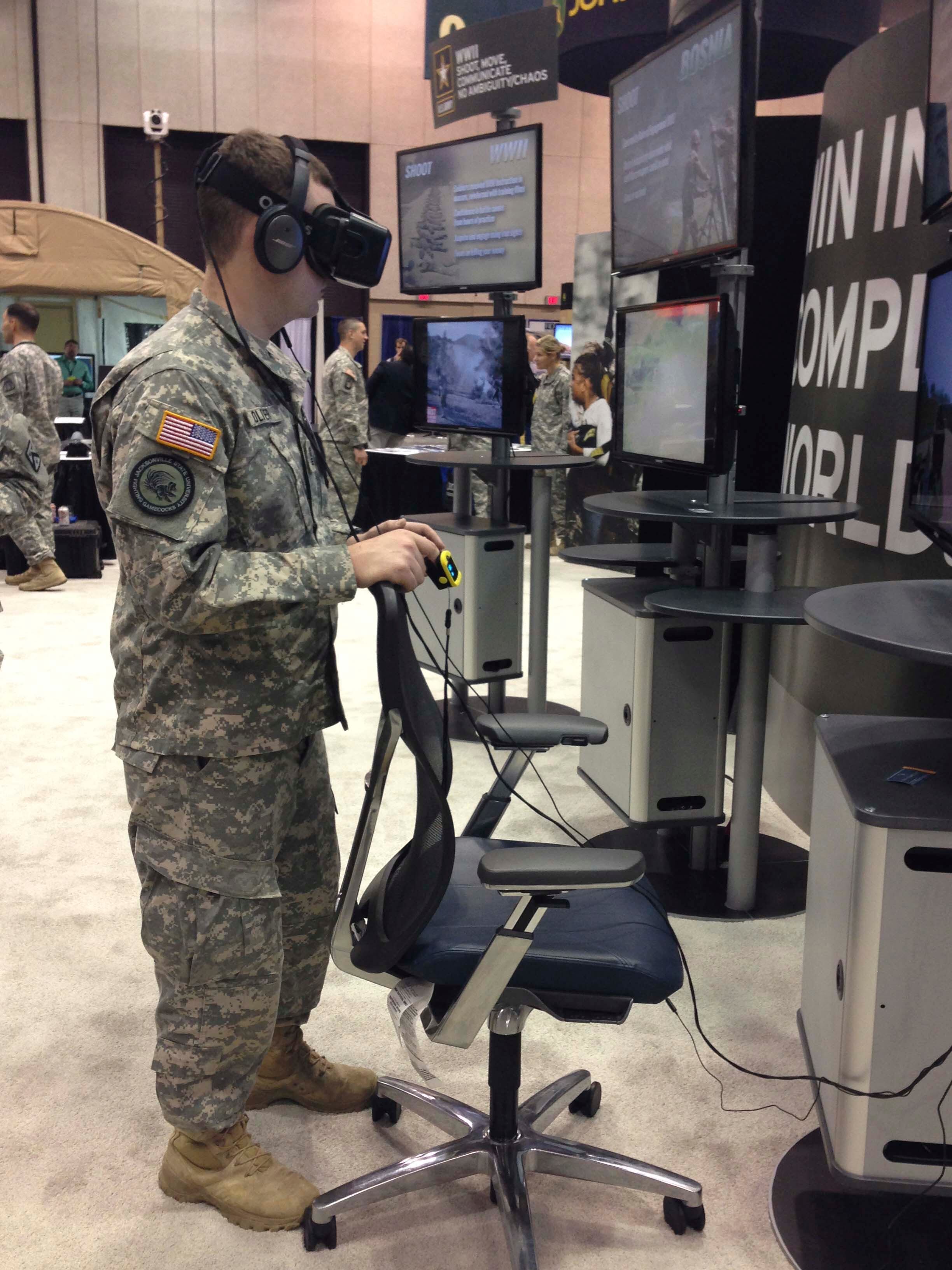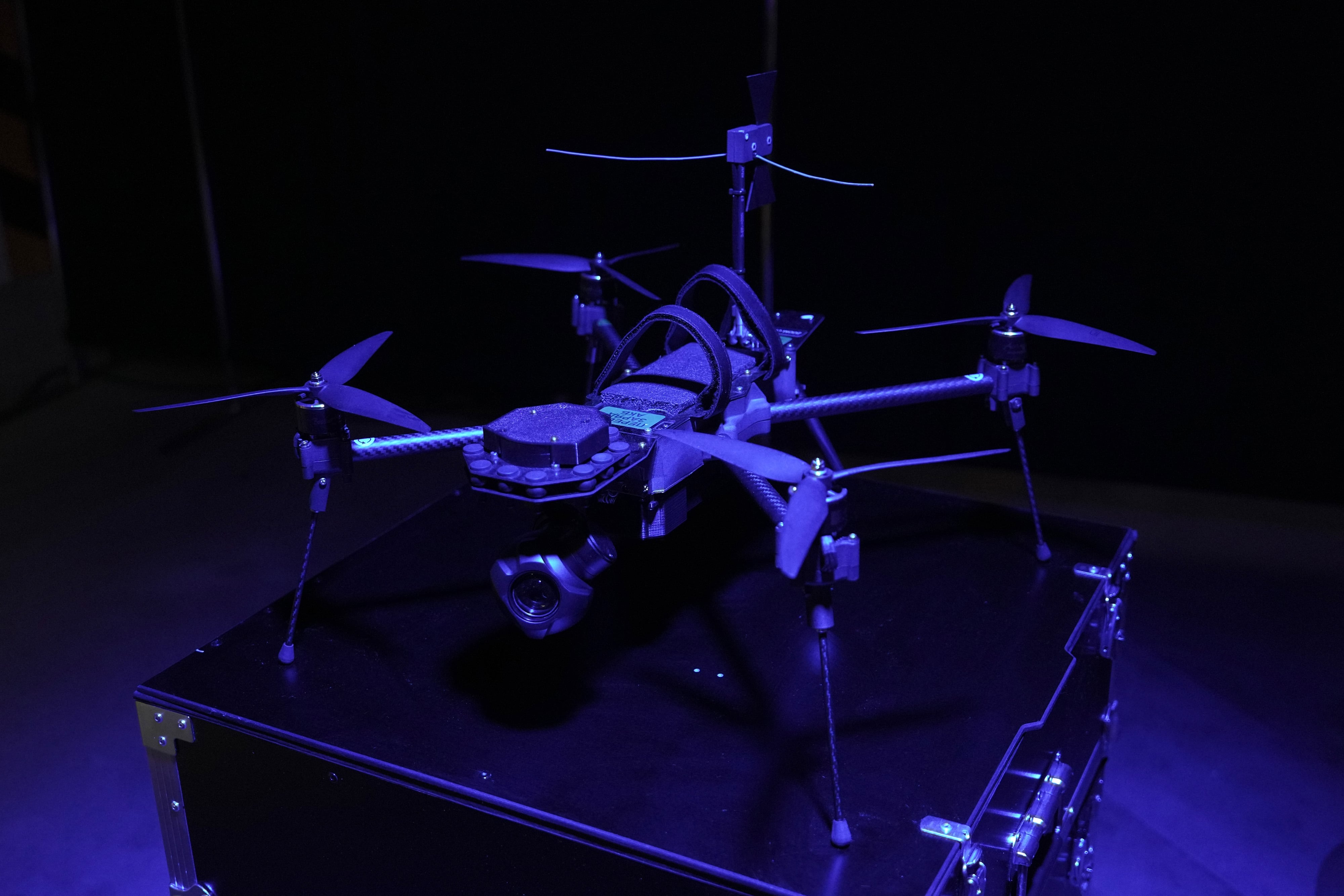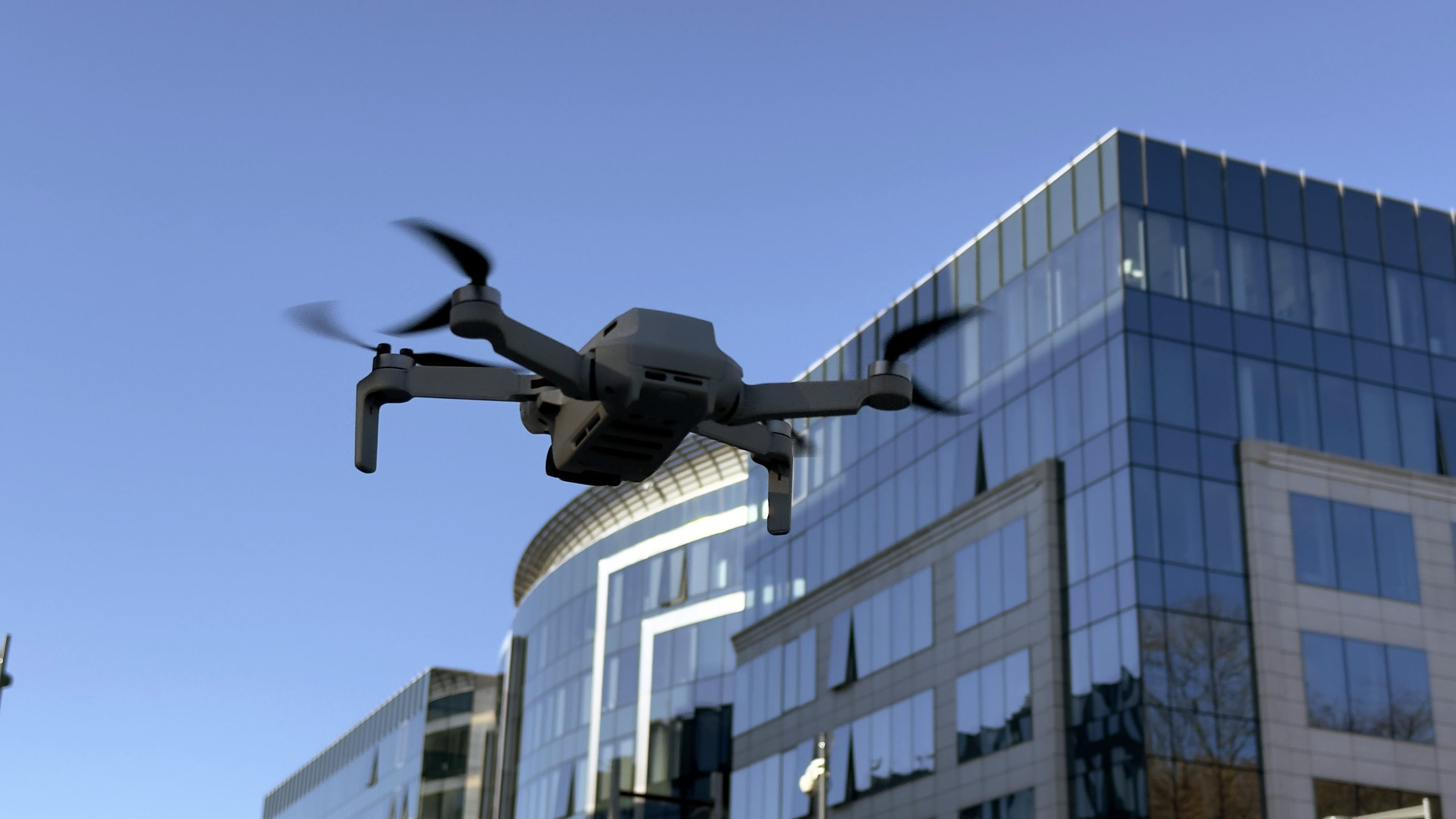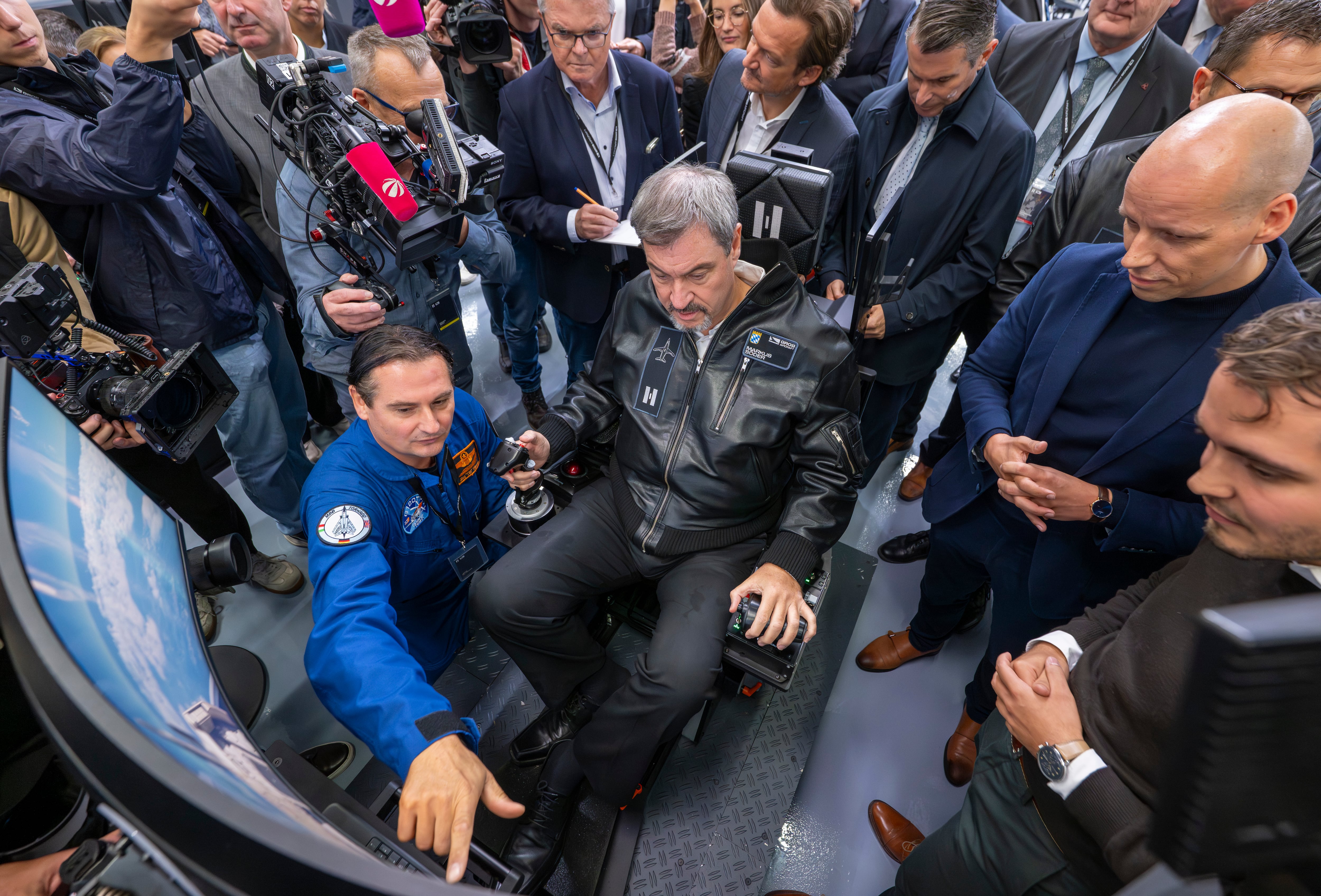The Army is readying its force of the future, starting with how it trains new recruits.
Those recruits comprise a generation raised on technology, including video games that simulate warfare. Now the Army is capitalizing on that tech savvy by rolling it into training doctrine and preparing troops for future battles.
Virtual reality will be a key part of that tech-based training, building on training doctrine from previous generations and maintaining tradition and proven tactics, techniques and procedures. Here, the old school meets the new school as new soldiers get a taste of the theater without ever boarding a plane.
Check in often at our Show Reporter page for the latest updates from the AUSA event.
"Before today, when we have things like cyber maneuvers, we had focused on live training – no simulation or virtual," said Col. David Cannon, training capabilities manager for the Army's integrated training environment at Training and Doctrine Command. "This is the first time where we really must build a synthetic environment that immerses soldiers and helps them thrive in the chaos and ambiguity and win in a complex environment."
Cannon, speaking April 1 from the exhibit floor at the AUSA Global Force Symposium in Huntsville, Alabama, said that gaming-based training is blossoming in the Army today, taking commercial capabilities from industry and building it in to previously existing training approaches.
At a macro level, that means evaluating and integrating previous generations of training. That includes lessons from the language-only approaches of World War II, to the cultural focus of the Bosnian conflict, to the proactive, real-time communications and complexities of Operation Enduring Freedom and Operation Iraqi Freedom.
And while all Army training is based on the fundamental "shoot, move, communicate" premise, Cannon acknowledged that the Army can't ever replace the live environment. But when it's too dangerous an option, virtual reality is an increasingly critical part of soldier preparation.
"We use virtual to make them understand themselves better, understand how they learn, how they react," Cannon said. "We're an Army that's engaged, but we're an Army that's learning."








